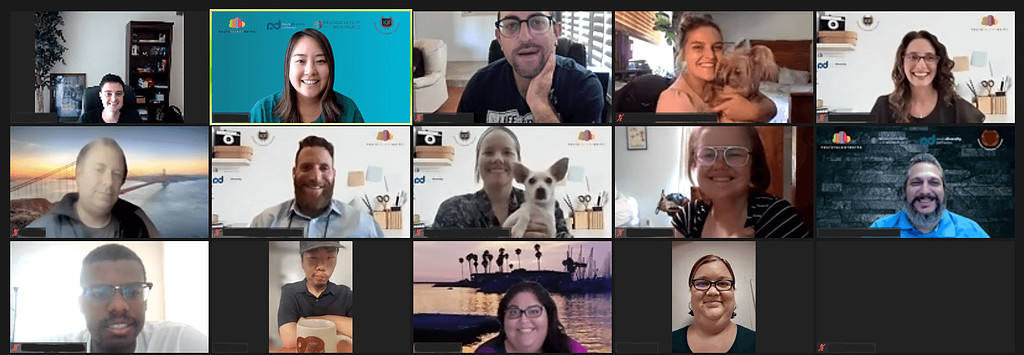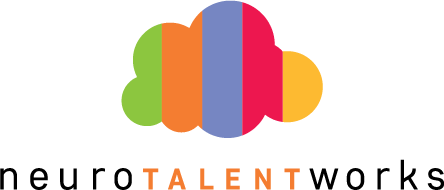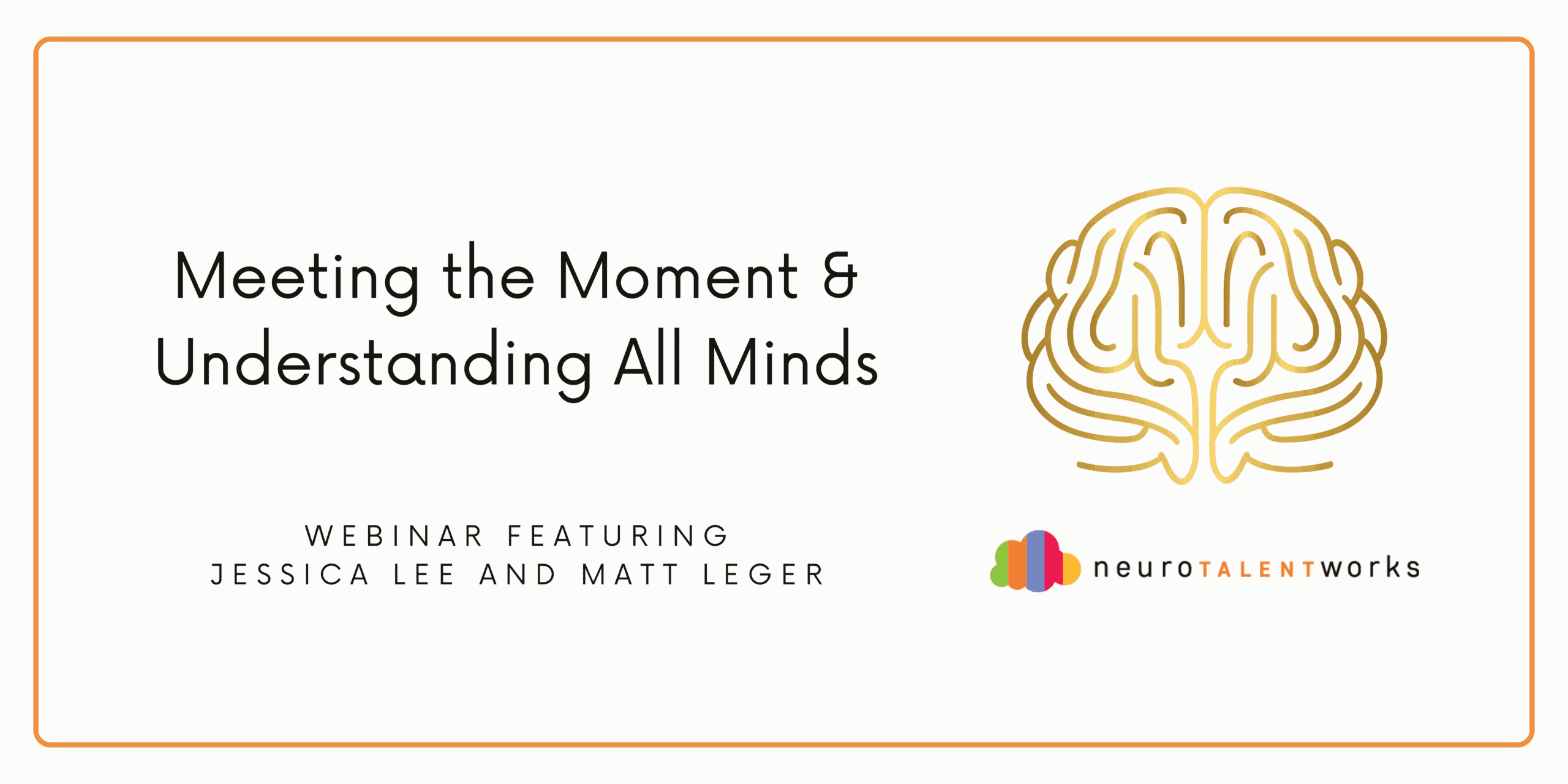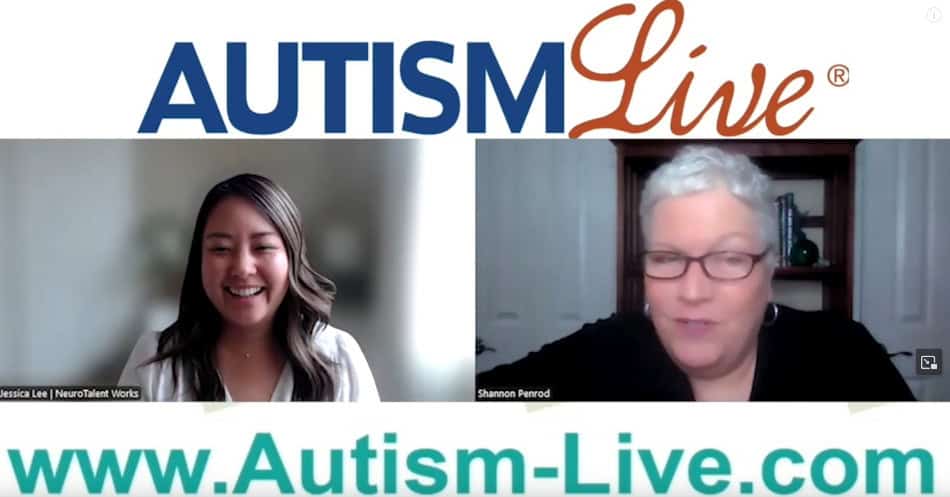Picture it: on Monday morning you are logging onto Zoom, pouring a cup of coffee, and waking up enough to click “Start Video.” We all say hello and make introductions with colleagues and new faces on the call. Engaging in small talk, we begin building our rapport for the meeting, which may include comments on the weather, pets, stories from the weekend, and humorous comments such as, “Mondays, am I right?” or “Happy Monday!”
For many employed adults, this is a routine experience of work interactions. For some adults in our neurodistinct community, this was a new opportunity provided in the first cohort of our (Neuro)diversity in Insurance Job Training and Hiring program. NeuroTalent Works empowers program participants with industry training and certifications, connections to insurance employers, professional mindset and skills training, and a supportive cohort of peers. The program is made possible through the California Department of Rehabilitation’s (DOR) Demand Side Employment Initiative (DSEI).
Most of us have struggled to find gainful employment. Like many people with neurodistinctions including autism, ADHD, mental health challenges, or other cognitive conditions, we often find ourselves unemployed or underemployed despite holding a Bachelor’s degree and even graduate degrees. The neurodistinct community makes up at least 15-20% of the US population including those with Autism and/or ADHD (CDC). Among neurodistinct adults, there is a 90% unemployment rate, the highest among any group in our country (TACT). In this program, our goal is to increase opportunities for underrepresented neurodistinct adults to put their exceptional critical thinking and analysis skills to work in the insurance industry.
In three weeks of professional training in the (Neuro)diversity in Insurance program, we had opportunities to explore our strengths and weaknesses, learn hard skills for insurance processing, and feel supported by each other and compassionate professionals from corporate backgrounds. A variety of leaders collaborated to make this possible. Joe Riddle of Neurodiversity in the Workplace coached participants on LinkedIn and Personal Branding. Ranga Jayaraman of Neurodiversity Pathways provided workshops on Growth Mindset, Executive Function, and Assertive Communication. Participants had the opportunity to earn a Certificate in Principles of Insurance through training from Laurie Infantino of Insurance Community University.
It was profound and playful to train with this group. There were jokes, memes, and emojis passed around. We shared literal thinking and discussions on topics of interest. The direct communication and high level of honesty in our community also led to deep conversations. The Professional Volunteer Mock Interviewers made magic happen for everyone involved in the training. Their eyes were opened to see that our talent pool is intelligent, capable, and deserving of a chance to obtain gainful employment. It was amazing to see authentic human connection between our neurodistinct candidates and representatives of the insurance industry. Some professionals became individual Mentors right away, and others set a goal to find solutions and jobs for the candidates they interviewed.

My ask for you, reader, is to connect with the neurodistinct community along with other marginalized communities in a way that is meaningful for you. It makes a sizable impact in the life of a neurodistinct adult to have support from professional mentors and colleagues. It can be as simple as engaging in that “water cooler small talk” with a neurodistinct acquaintance or as complex as providing job opportunities for neurodistinct candidates at your company. You can support our mission at NeuroTalent Works in the following ways:
- Partner with us as a Professional Volunteer and Mentor for neurodivergent adults
- Donate to support our organization as we close out the year
- Introduce us to potential Businesses Partners who could hire from our talent pool or expand their neurodiversity inclusion efforts
- Refer Insurance Industry executives to join hiring efforts for the (Neuro)diversity in Insurance Program
- Share with us a story about your experience with neurodiversity
- If you have a neurodistinct loved one, encourage them to join our talent pool and community events
- Like and follow us on social media (IG: @neurotalentworks, Facebook: NeuroTalent Works, LinkedIn)
If you have the privilege of your own career growth and personal network, leverage that to champion neurodiversity in the workplace! Do you remember your first professional mentor, or a person who opened the door for you to enter your first meaningful job opportunity? Relationships make things happen, and it would be amazing to share your personal career experiences with our community. Get to know us!
Sources for statistics in the article:
CDC – Data and Statistics About ADHD and Autism Spectrum Disorder
Stand Together Foundation – How TACT is Improving Employment Statistics for Neurodiverse Individuals




